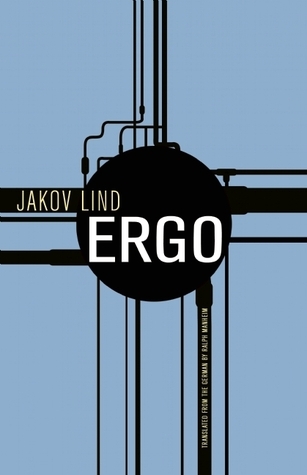What do you think?
Rate this book


150 pages, Paperback
First published January 1, 1967
1. I cannot come up with any literary comparisons that I distrust more than comparisons to Kafka or Beckett. I'd likely include Joyce in this list, but I tend to see that comparison made more in GR reviews (which I already inherently distrust), than in actual published reviews (which I also distrust, but to a lesser extent. One has to get recommendations somewhere). But damn do reviewers love comparing difficult authors to Kafka and Beckett. And truthfully, I almost never understand the Kafka references, and I only understand the Beckett references to mean "I didn't understand it". I only came across the comparison of Lind to BOTH Kafka and Beckett at the end of this book (it's in the author Bio) but would certainly have been more wary of this book had I seen it upfront.Those things aside - and as already referenced - this was a pretty disappointing read. The synopsis:
2. This is the third disappointing Open Letter book that I've read at this point. The first Open Letter book I read was The Golden Calf, which was utterly incredible, but everything else I've tried by them since has been decent at best. Which is unfortunate, as I really like the Three Percent blog (University of Rochester's translation focused blog) and this is their "translation press". It's also unfortunate as I own 5 or so other books of theirs, and I'm progressively less excited to read them with each disappointing book of theirs I read.
The consuming passion of Wacholder, the star of Lind's most playful work, is his only true friend and nemesis, Würz, who hasn't left his house in 17 years. When Wacholder's 74th letter seemingly has no effect, he turns to other increasingly outlandish schemes to defeat his rival, even staging a rally to declare Würz's non-existence. A feverishly comic novel.make it sound like it's going to be a delight, which it decidedly was not.
Dear Würz, although dominant inclinations might have permitted another step forward and the pertinent instrumental suggestion and advance of effective knowledge, it cannot be denied that not always before we take such a step, I, in this connection, ask someone who is above all doubt to develop his theory superficially but thoroughly and unintelligibly, especially to the scientist, that what has actually happened and is universally known simply cannot, that the contemplation and opportunity for experiments have assumed enormous proportions in connection with statistical truth, where concepts are not, that in many cases blood-pressure readings and stool samples often no longer or even conversely produce deleterious effects if the greatest danger is eliminated and really worthwhile ailments are cured by the incomprehension of the psychiatrist. . .